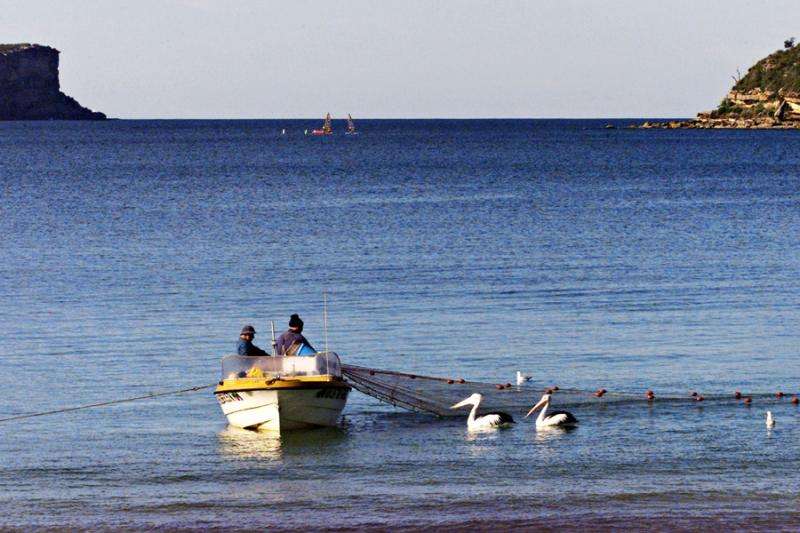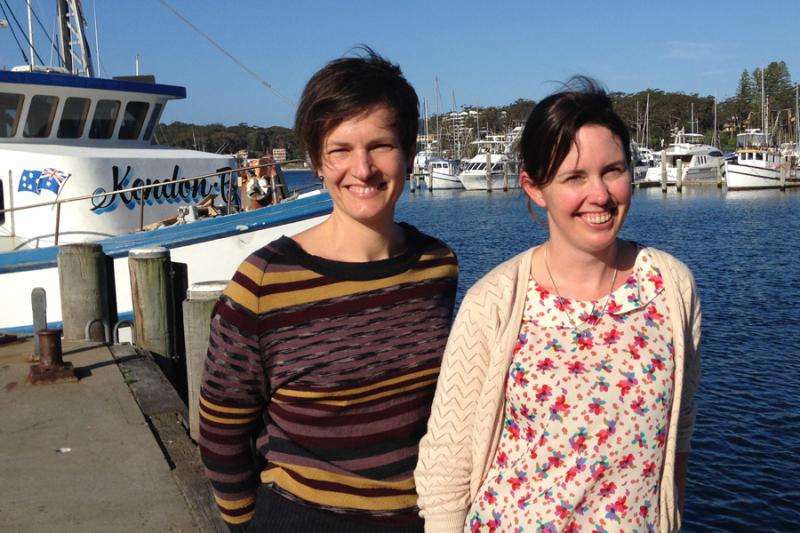Catch of the day key to sustaining coastal communities

Locally caught fish with chips is a delicious highlight for many coastal holiday makers. Now new research shows just how much the local catch means economically and socially for coastal communities.
Findings of a two-year University of Technology Sydney research study, Valuing Coastal Fisheries, reveal that both social and economic factors must be considered when measuring the value professional fishing delivers to communities.
The NSW professional fishing industry contributes more than $436 million in revenue annually to the State and generates about 3,290 full-time jobs in fishing operations, service industries, sales and marketing. This is a significant increase over previous estimates of the value of the industry from the first point of sale and indicates the industry's regional economic value.
The study's quantitative and qualitative research results may assist in guiding ongoing discussions in many regions regarding management of marine parks and coastal resources for professional and recreational fishing.
UTS researcher Associate Professor Kate Barclay said it was the first study conducted in multiple fishing communities to understand the diverse ways fishing industries contribute to local communities. The researchers traversed the NSW coast speaking with fishers, families, the public, council staff, tourism organisations, seafood retailers, wholesalers and restaurant owners. Hundreds more participated in questionnaires.
"The findings show professional fishing is an essential part of the fabric of communities," Associate Professor Barclay said. "It supports and is in turn supported by an intertwining range of community life and work-related activities.
"It generates vital income and jobs in rural towns. It is also very much interdependent with other businesses including gear suppliers, mechanics, fuel providers, freight and helps support tourism and hospitality with sought-after fresh locally caught seafood."
Findings of the research, federally-funded by the Fisheries Research and Development Corporation include:
- The general public in NSW believes it is important that seafood continues to be produced in NSW (94 per cent agree), and the desire to support local economies is their main reason for purchasing locally produced seafood (96 per cent);
- 89 per cent of NSW residents expect to eat fresh local seafood when holidaying on the coast, 76 per cent say it is an important part of their coastal visit experience;
- 60 per cent of professional fishers have helped out with search and rescue operations in estuaries and coastal waters;
- 96% believe buying local seafood is better for their local community;
- Fishing both professional and recreational are part of many towns heritage;
- 78% of recreational fishers across the state prefer local bait.

"All tiers of government will benefit from the research that can assist decision making that is reflective of local community needs as well as identifying new opportunities," Associate Professor Barclay said
"Tourists and local recreational fishers, eager for a great catch value the local knowledge professional fishers can share on the best places to cast a line. They also like buying the local catch in support of local businesses.
"Professional fishing is an important economic and culturally sustaining activity in many coastal Indigenous communities as well. It enables greater income, independence and pride among operators.
"Indigenous fishing industry operators and workers contribute a great deal to their communities, sharing culturally important seafood and handing down knowledge, including about the health of fish stocks.
"Australia is a world leader in maintaining healthy marine resources; but right now we are limited in predicting how a serious decline in professional fishing would affect the economic and social fabric of many coastal communities."
Co-researcher, Dr Michelle Voyer said the NSW study could be replicated in communities that maintain professional fishing fleets in other Australian states, providing invaluable information.
"Much scientific research on biological factors in fishing has been conducted to date, but amazingly almost none until now has been done to understand how professional fishing sustains the social and economic lives of so many regional Australians," Dr Voyer said.
"Conducting the research involved much coal-face collaboration and input from local businesses and the wider community. It served as a catalyst for communities to take stock of a key area of their lives that they may not have otherwise fully considered.
"We know conditions vary from community to community, but we believe coastal communities engaged in professional fishing in all states could gain much by capturing local knowledge and accumulated intergenerational wisdom to help best plan for their futures."
More information: Full research report and regional fact sheets here: www.uts.edu.au/valuing-coastal-fisheries
Provided by University of Technology, Sydney


















